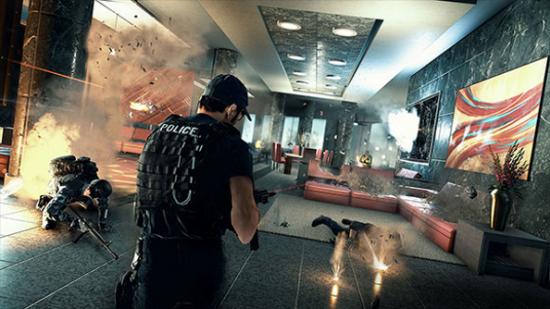Electronic Arts CEO Andrew Wilson has almost finished his first year in the big chair. And as year one comes to a close, he’s planning for the future of the gargantuan publisher. At GamesBeat 2014, this morning, he laid out his three year plan and managed to do it without sounding like Lex Luthor. He did use a lot of jargon though.
Wilson breaks down EA’s three priorities: establishing a player-first culture, digital content and internal stuff within the company – breaking down the traditional structure of sales, marketing and development.
“The first was really establish that player-first culture back inside the company. The focus is on the player and the people enjoying the entertainment you produce. That is the most important thing and I want to get back to that,” Wilson told the GamesBeat audience.
“My belief is that in the future of our industry, in a world where there are more devices that play games, more people creating content to play on those devices, that the relationships that you have with the players are going to be the deciding factor between success and failure,” he continued. “Your ability to actually reach those players and deliver them entertainment is really going to be based on that relationship that you have with them.”
A focus on digital isn’t anything new for EA, though there’s certainly still a lot of physical media from the publisher on store shelves. “That conversation you can have through digital means was really important to us and I really wanted the company to accelerate in that,” he said.
Finally there’s the company structure. “It couldn’t be development on one side and marketing on the other side or sales, or finance, we actually had to work together. In this day and age every single person of the eight or nine thousand in the company had to accept responsibility for building and maintaining and nurturing and growing those relationships with players.”
Wilson reckons that innovation will be key going forwards, too. Not just in terms of creating new worlds and freakishly believable character models, but in trying new things, or old things in new ways. He cites Battlefield Hardline as an example of this. It’s Battlefield with cops and robbers, neither of which are particularly refreshing, so it’s probably not going to be on many lists of “innovative games”, but Wilson points to the delay as a way for that innovation to come out.
“When you look at something like Battlefield Hardline, we moved it because there was more innovation that could go in there,” he said.
Those delays are attempts to add polish as well. Wilson brings up Dragon Age: Inquisition, which has been delayed by a month. “When we moved Dragon Age we did that because we thought we needed more time to get rid of bugs,” he explains. “So two decisions we’ve made in the last few months – one around driving innovation, one around driving polish, both with the ultimate goal of quality.”
EA’s got a bit of a reputation for nickel and diming. The publisher frequently puts out premium games with microtransactions or prices their new games higher than the average. The Sims 4 is a recent example of this, where the standard edition on PC is obscenely high, at £50. Yet Wilson talks a lot about value, and how consumers expect to get more than what they’ve paid for.
“Every time someone gives you an amount of money, $1, $10, $100, $1000, whatever that might be, always get to a point where they feel like what they get in return is greater than what they put in.” This is how EA needs to be thinking, he said.
You can watch Wilson’s talk, along with the entire conference, over on Twitch.
